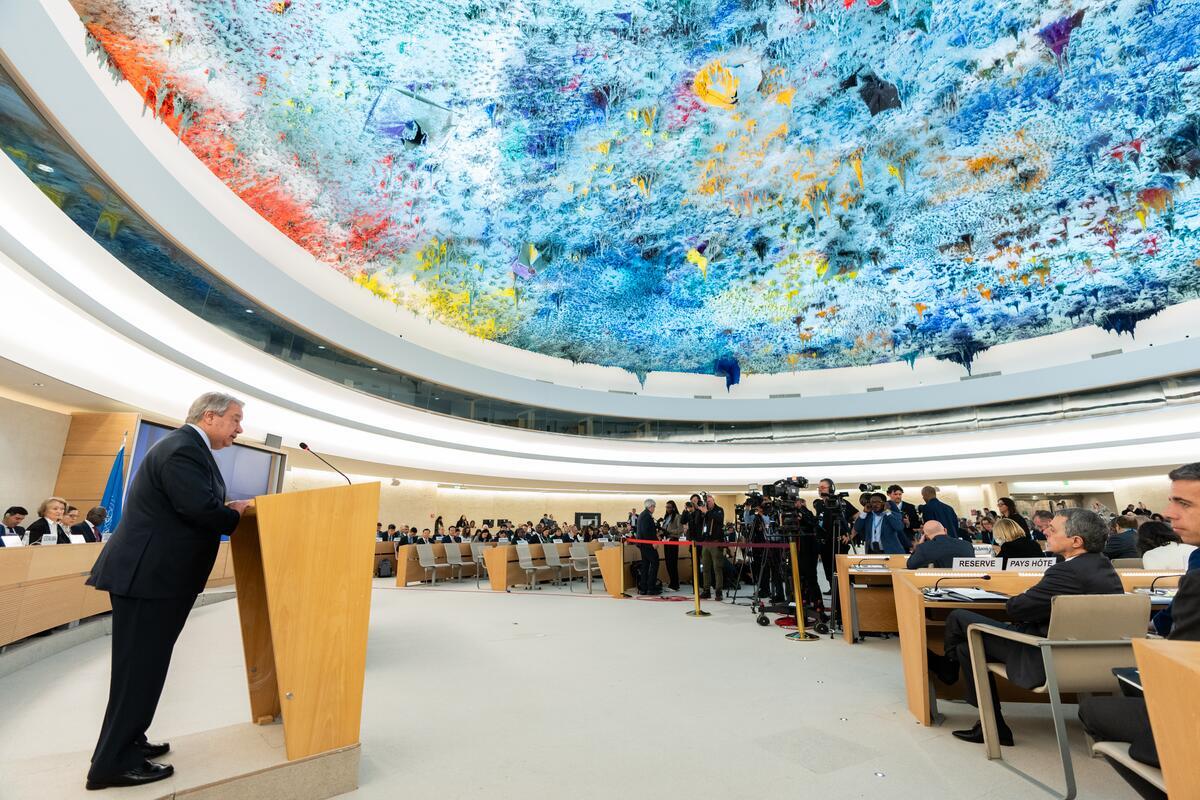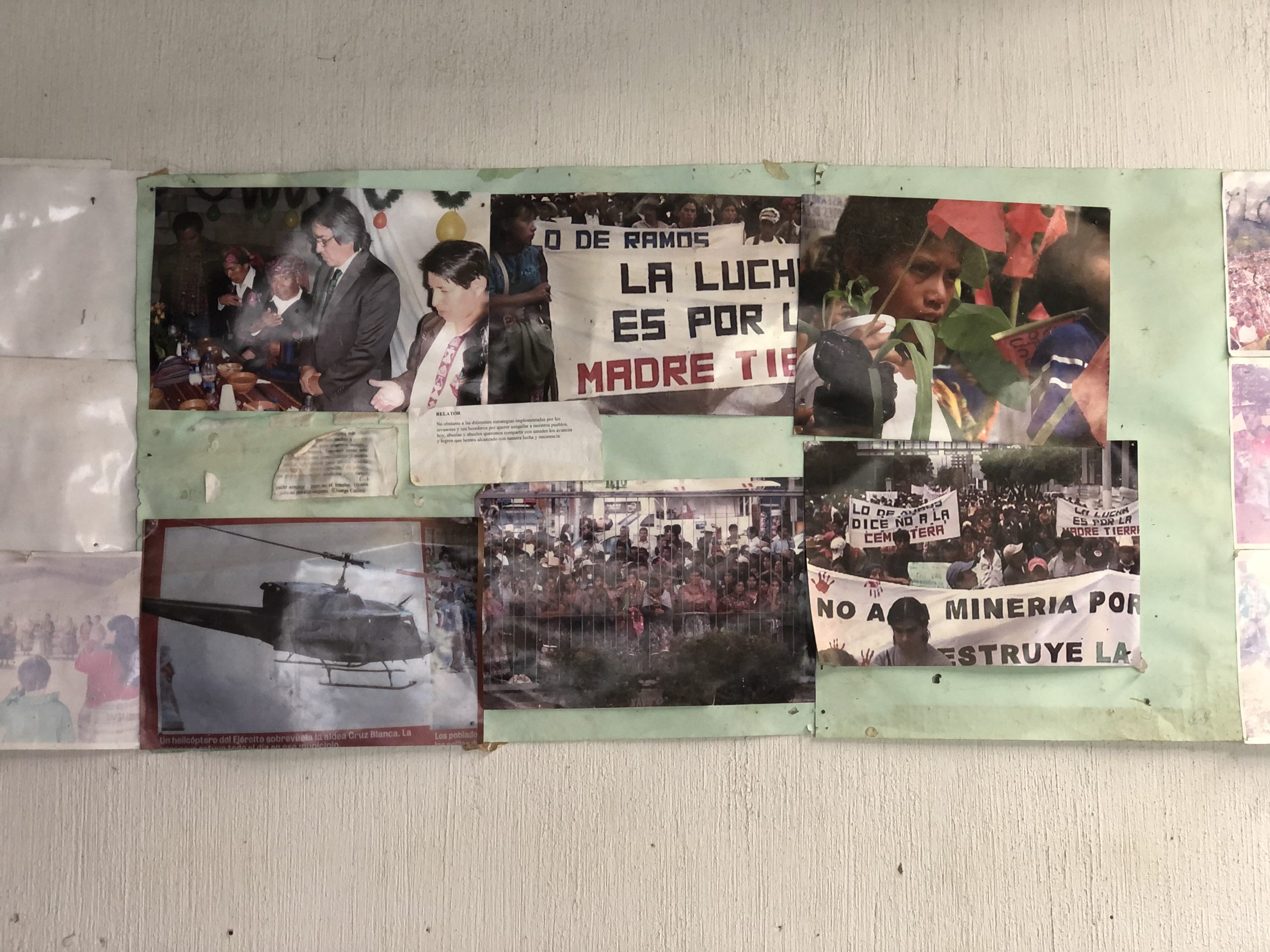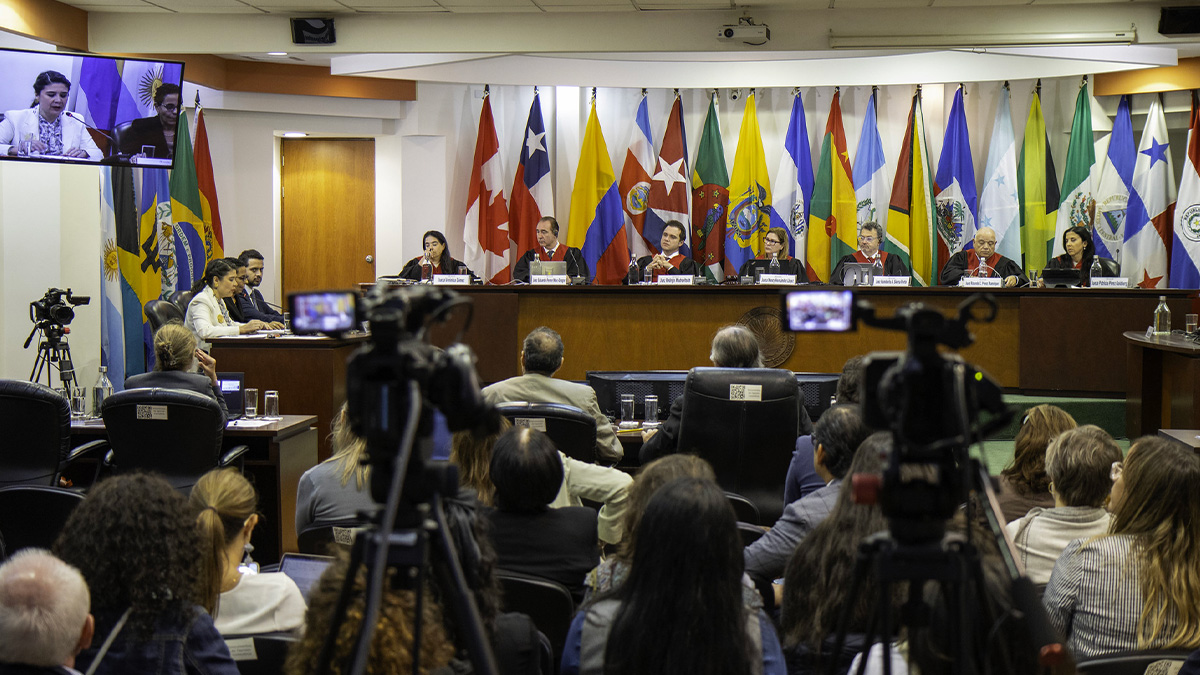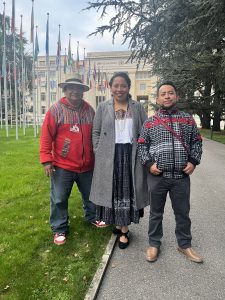
At each March session of the UN Human Rights Council, the High Commissioner for Human Rights presents a report on Guatemala based on the findings of his country team. This is followed by a dialogue with States on Guatemala and other countries.
This is an opportunity for Guatemalan defenders to speak directly with States, UN and civil society representatives about the situation on Guatemala and other countries.
ISHR accompanied three defenders in some of their advocacy activities: Bernardo Caal, a Q’eqchi Mayan leader, teacher, and environmental and land rights activist; Luis Pacheco, former president of the Council of Communal Mayors of the 48 cantons of Totonicapán; and Lourdes Haquelina Gómez, a woman of Q’eqchi-Afro-descendant origin.
Opportunities: the change of government in Guatemala
On 14 January, after months of protests led by various sectors of civil society, and in particular by Indigenous peoples, Bernardo Arévalo was sworn into office as president.
Arévalo has made clear his intentions to fight against corruption and impunity in order to favour the return to an inclusive government that is sensitive to the demands of society. This has been followed by actions such as the establishment of an anti-corruption commission, or his reiterated calls to be respectful actors of regional and international human rights’ standards, However, challenges remain serious.
Challenges to be addressed:
- The co-optation of the judicial system:
Bernardo Caal and Luis Pacheco brought up the dangers that remain due to the cooptation and weakening of State institutions.
The actions of Attorney General Consuela Porras, who remains in her post, such as the criminalisation of defenders and justice operators, the fabrication of cases and the dismantling of key institutions including her own office have contributed to a climate of corruption, fear, and uncertainty. Moreover, the lack of judicial independence and impartiality, and current arrest warrants, make it impossible for people in exile to return.
Bernardo Caal and Luis Pacheco thus emphasised their demands that the international community remain vigilant of upcoming appointments in several key positions in the judiciary in the coming months.
Lourdes Haquelina Gómez also pointed out that the co-optation of the judicial system remains the greatest impediment to the political and social stability of Guatemala. She explained that, given the lack of guarantees in the administration of justice, various sectors of society are still afraid to participate in public life or assert their rights .
Criminalisation of human rights defenders
According to Guatemalan human rights watchdog UDEFEGUA, there were 5,965 attacks against human rights defenders between January and November 2023. The absence of protections for human rights defenders, together with continued impunity, have hindered the work of defenders, particularly those from Indigenous peoples.
Bernardo Caal was imprisoned for more than 4 years for fighting for the protection of the Cahabón river and for denouncing the lack of community consultation in the construction and operation of a hydroelectric plant on its shores.
Furthermore, Luis Pacheco pointed out that recent criminal justice reforms, which have justified the imprisonment of protestors, as well as the lingering impacts of the closure of the UN-backed International Commission against Impunity in Guatemala (CICIG, in Spanish), are key and pending issues surrounding the provision of justice in the country.
Given the increasing number of attacks against defenders, Caal, Gómez and Pacheco highlighted the growing vulnerabilities that Indigenous communities have had to face in the defence of their territories. Therefore, Bernardo Caal and Lourdes Haquelina Gómez made fervent calls to understand that in order to realise the right to a clean, healthy, and sustainable environment, it is fundamental to continue confronting the invisibility and corruption to which Indigenous peoples are subjected by the State.
Caal and Gómez also alluded to the impact of extractive industries, which have increased the vulnerability of historically marginalised communities. They emphasised the existence of a chain of co-responsibility and how the distortion of Indigenous cosmologies, coupled with the silence of investors and the very investments of European countries in extractive projects, makes these corporations complicit in the chain of human rights violations that result from their activities.
Fighting for land rights and in defence of the environment
Taking advantage of her stay in Geneva, Lourdes Gómez participated in a side event on the human rights situation in Guatemala. She highlighted the devastating consequences that extractive activities have had on the development of Indigenous communities.
Gómez, whose work has focused on the defense of land and territory, explained that desertification and land dispossession, as well as the lack of drinking water caused by such activities, is what has led to the growing vulnerability of their communities, forcing them to abandon them and emigrate.
She added that in the case of women, these consequences are compounded by the increased risk of becoming victims of sexual violence in their communities
Recommendations made to Guatemala during the interactive dialogue:
In his annual report, the High Commissioner made recommendations to the Guatemalan State to take measures to guarantee judicial independence, to develop a public policy for the protection of human rights defenders, taking into account their diversity, and to establish administrative frameworks for companies to comply with human rights standards.
During the interactive dialogue with the High Commissioner, the European Union added that Guatemala must continue to work on strengthening the rule of law for the protection of human rights and the promotion of social justice.
In a side event on Guatemala, the Special Rapporteurs on the independence of judges and lawyers and on freedom of peaceful assembly and association both called for to fight corruption and impunity by tackling discrimination and strengthening the rule of law in Guatemala.
Lourdes Gómez, Luis Pacheco and Bernardo Caal made a series of recommendations to Guatemala during their stay regarding:
- Protective actions in favour of human rights defenders, which should be accompanied by the adoption of measures and legislation that promote coherent social responsibility in order to hold companies accountable for environmental damage and to bolster an inclusive democratic environment.
- The need to recognise that the climate crisis is interlinked with growing social inequalities and corruption promoted by various actors, including large corporations
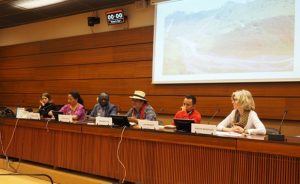
Bernardo Caal expressed that, as a consequence of the increase in cases of intimidation, criminalisation, and death of human rights defenders, it is the duty of the States to guarantee respect for the freedom, prior and informed consent of Indigenous peoples and to stop taking actions that criminalise human rights defenders.
Gómez, Pacheco and Caal urged the Guatemalan government to accede to the Escazú Agreement and implement the necessary measures to guarantee the protection of environmental defenders, particularly Indigenous people.
Finally, all three urged Guatemala to continue its commitment to cooperate actively with the UN human rights mechanisms, to accept visits from Special Procedures, to implement the recommendations of the Universal Periodic Review, and other treaty bodies. They requested a country visit by the High Commissioner.
Looking to the future
‘Although Guatemala is clearly experiencing a time for hope and change, the testimonials of Lourdes, Bernardo, and Luis show us that urgent issues remain amid this democratic transition,’ commented Ulises Quero of ISHR. ’Their contributions highlight the importance of the continued attention by the international community on the human rights situation in Guatemala, particularly in order to guarantee the work of human rights defenders in different spaces,’ Quero added.
‘We are aware of the time and resources these visits require, as well as the need to be alert to the risk of reprisals against any defender participating at the international level,’ Quero concluded.
